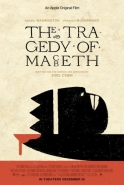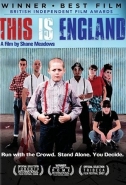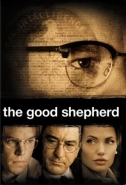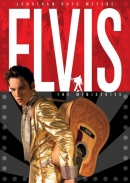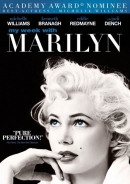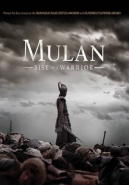 Sign up
Sign up to add this to your collection
|
 Sign up
Sign up to add this to your favorites
|
|
 70%
70%
Overall Rating
|
|
Ranked #2,780
...out of 20,736 movies
|
 Sign up to check in!
Sign up to check in!
|
In 16th century Venice, when a merchant must default on a large loan from an abused Jewish moneylender for a friend with romantic ambitions, the bitterly vengeful creditor demands a gruesome payment instead.
--IMDb
|
|
Believe it or not, no Hollywood director has ever attempted to bring William Shakespeare's "The Merchant of Venice" to the big screen. Not even Kenneth Branagh has tackled it, and that says a lot considering he has tackled just about every other Shakespeare work, some more than once. The reason for this has to lie in the themes of the story. "The Merchant of Venice" is the ugliest, most vicious work of Shakespeare's literary career, packed full of intolerance, racism, revenge, and characters who live for only one thing -- money. Michael Radford, the man behind "Il Postino" a few years ago, is the brave soul who has dared to tread in forbidden waters. He assembled an all-star cast, some gorgeous production designers, and threw them all into one big lovebox of Iambic Pentameter. The result is one of the best Shakespeare adaptations ever -- a film that is difficult to watch, yet almost impossible to look away from -- a beauty of a film with such a dark and sinister core. "The Merchant of Venice" is a film that takes the worst possible traits of human nature and exposes how rampant they really were in his time.
When we first meet Shylock (Al Pacino), he is in a crowd of fellow Jews as the Christians scream out hate speech against them. We learn early on that the Jews are forced to wear red hats to signify their religious beliefs, and are herded into ghettos at night, guarded fiercely by the Christians. When Shylock attempts to greet a local merchant, Antonio (Jeremy Irons), he is spat upon and cast aside as a common nothing. This sets up the body of this film. We next find Antonio at his residence as he is visited by the young Bessanio (Joseph Fiennes). We deduce that Antonio and Bessanio were once more than friends, and Bessanio owes Antonio quite a bit of money. However, he comes asking for more money -- three thousand duckets -- that will fund his trip to visit the lovely Portia (Lynn Collins), where he hopes to choose the correct casket and win her heart. Antonio, however, is struggling financially, but gives Bessanio permission to use his good credit to borrow the money from one of the local Jewish moneylenders. Shylock is the man they choose. Instead of charging the usual interest fees, Shylock has Antonio agree that, if the money is not repaid within three months time, he shall forfeit a pound of his flesh as payment of the debt. Antonio agrees. For the rest of the film, we see Shylock's rage continue to build as his daughter runs off with a local Christian boy, and as the intolerance towards he and his people continue to grow. Collecting the pound of flesh becomes something more than revenge...it becomes necessary to his survival. Events eventually transpire which make payment of the duckets impossible, and Shylock seems determined to collect the pound of flesh -- the heart to be precise -- from Antonio. This leads the film to one of the most heartbreaking endings in film history -- something so brutal and difficult to watch, it makes us realize how terrible Jews have had it over the centuries.
The most common themes in this film are racism and greed. Christians loathe the Jews for their religious beliefs, but are willing to look past those beliefs only when they need to borrow money from them. This introduces the notion that to every religion, money will always take a top billing over religion. The Jews in this film are treated with such intolerance -- not the kind we are use to seeing in films like "Schindler's List", but a psychological and spiritual cruelty. We also see Shylock as a man so consumed by revenge and hatred that he will stop at nothing to get what he wants...what he needs. When his daughter leaves him for the Christian boy, he is really more worried about the duckets she took than anything else -- it is as if he views his daughter as just another commodity that has been taken away from him. This is the straw that breaks the camel's back for him. With his daughter gone, and a large chunk of his money gone, that pound of flesh begins to signify everything wrong in his life. He uses that pound of flesh to represent all of the injustices brought against his people over time. We also see Bessanio and Antonio as vain, egotistical men, who seek all of the pleasures in life, but want them for nothing. At the end of the film, Antonio's debt has not been re-paid, yet Shylock is the man eventually punished. Bessanio breaks a secret vow to Portia, but is not punished as one would think he should be. These men are not dealt any consequences for their actions, but I suppose that's the way the world usually works.
The central character in this film, for me, was Shylock. He is a character that can be taken as either the antagonist or the protagonist, depending on how you view the film. I took him as the hero of the film. He is mistreated, misused, and misrepresented throughout the film, and when he finally has enough and decides to exact vengeance, he is once again mistreated, misused, and misrepresented. The ending of this film is nothing short of tragic. When we see everything Shylock has stripped away, and then hear Antonio show such 'mercy' towards him, we realize that the Christians have accomplished everything they sought out to accomplish -- they have torn down a Jew in front of all of Venice. They have introduced the Jew as a poor, pitiful creature who can only find mercy and redemption at the hands of a Christian. And, when Antonio insists that Shylock lose all his assets if he does not convert to Christianity, we once again see how money is placed higher than religion, even with Shylock. By the end of the film, we really see Judaism and Christianity as the same -- they both have the same moral restrictions and shortcomings.
Performing Shakespeare can be very tricky for actors, especially with the Iambic Pentameter and the delivery of the lines. Al Pacino, it would seem, has been speaking this language his entire life. He takes his acting skills to a new level as Shylock, possibly by favorite performance he has ever given. At the end of this film, just look in his eyes -- look at how destroyed he is...how devastated...how sad. And, when deliver his 'if you prick us, do we not bleed' speech before the Christians, it is one of the most marvelously delivered Shakespearean monologues in the history of cinema -- he breathes new life into Shakespeare. Joseph Fiennes, having once portrayed Shakespeare, still commands the dialogue with a sense of innocence and passion. As Bessanio, he gives us so many reasons to root for him, but far too many more to loathe him. Jeremy Irons, as Antonio, is the closest thing to a villain this film has -- he is everything that is wrong with intolerant people in the world. And, Lynn Collins. She has some trouble with the dialogue at first, but manages to find her way and master if by the closing credits. Alas, as good as all of the supporting actors are in this film, Pacino is the presence that carries the picture. He is a master. His performance is a masterpiece.
So, with all of the big budget Hollywood crap floating around out there, wouldn't it be nice to see a beautiful film with a very strong and powerful storyline? Vin Diesel and John Travolta can only do so much with the written word -- Al Pacino can turn it upside down. "The Merchant of Venice" has been well worth the wait, and Michael Radford has taken a great risk and watched it pay off in abundance. I can't imagine this film being done any better. Even now, I keep thinking back to the ending of the film, when Shylock is on his knees, at the mercy of Antonio and the Courts, begging for whatever he can get. It is an image that resonates with the viewer and stays there for a long time. I walked out of theatre feeling as if I had just had a ton of bricks collapse on my shoulders. This film has that kind of affect. Isn't it about time we saw some Shakespeare without Kenneth Branagh attached? 9/10.
|
|

